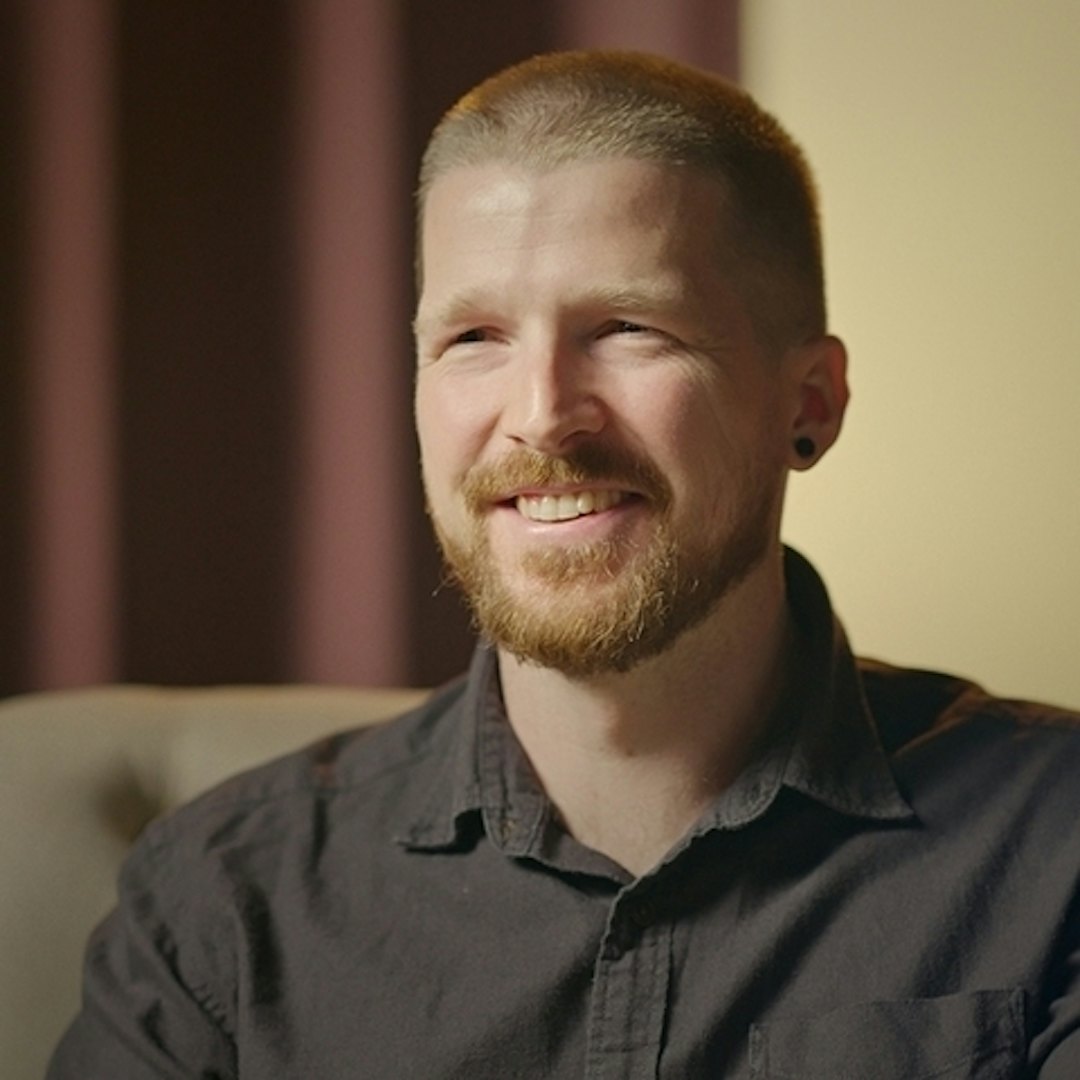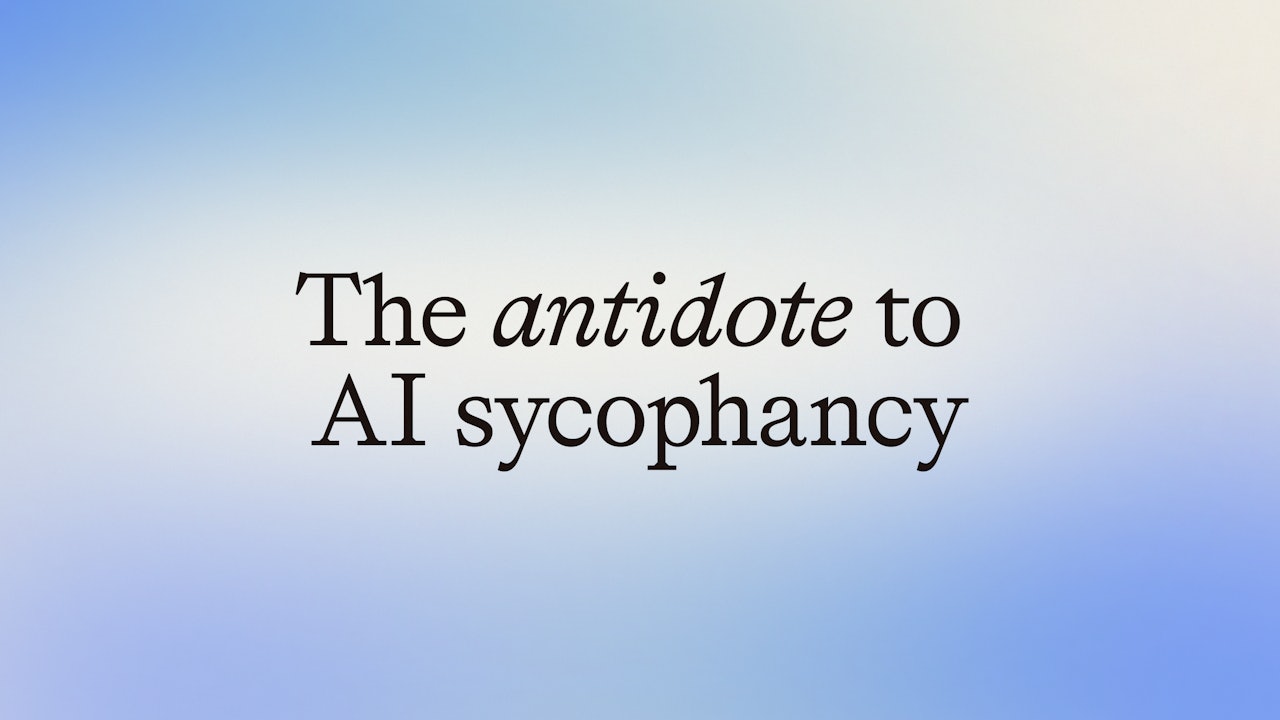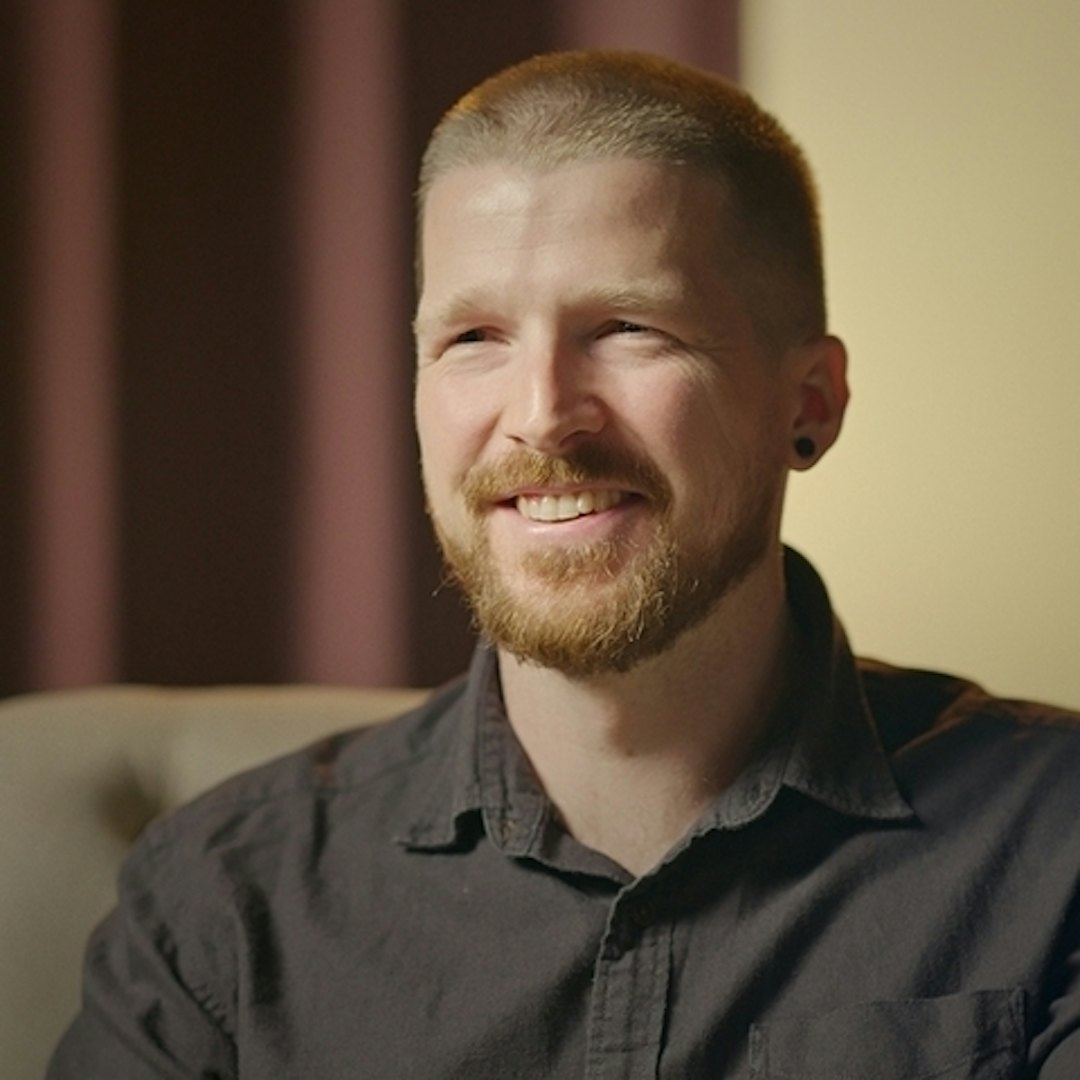Why AI’s niceness could be hurting mental health – And how to teach it to push back

Dr. Max Major
20 October 2025

Content
- Why it's good to be challenged
- The seduction of "yes"
- Three ways to combat AI sycophancy
- About the author
When AI first told me "no", I was surprised and, honestly, a bit annoyed. I was so used to AI agreeing with me.
AI chatbots are notoriously sycophantic – super agreeable and willing to champion your every idea. Kind of like a golden retriever puppy. But less adorable and potentially quite harmful to your mental health.
Why it's good to be challenged
In therapy and coaching, one of the most powerful things the therapist/coach can do is compassionately challenge your thinking, perspectives and beliefs. To be effective, a challenge should be paired with empathy and support – validating the client's experience while gently questioning unhelpful beliefs.
When skilfully timed and attuned to the client's state, challenges are associated with improved emotional regulation and reduced negative emotions [1], as well as improved trust and therapeutic alliance [2].
There's a fine line to getting this right.
Overly forceful or poorly timed challenges can lead to resistance and harm. But if a therapist agrees with you all the time? It might feel good in the moment but ultimately keeps you stuck.
Here's what that looks like in practice.
A client says: "I'm terrible at my job. I should just quit." A poor response? "You're right, that sounds really difficult." A compassionate challenge? "I hear how frustrated you are. Can we look at what's actually happening? You mentioned getting positive feedback last week – how does that fit with feeling terrible at your job?"
One validates the feeling while gently questioning the absolute thinking. The other just agrees and leaves the person stuck in that spiral.
The same applies to AI in mental health.
“Unchecked agreeableness in AI can create dependency, therapeutic misconception, and reinforce the very patterns therapy aims to change.”
The seduction of "yes"
Here's the tension: AI’s agreeableness drives engagement. People keep using tools that validate them. That’s actually important for getting evidence-based support to more people. But it also creates problems.
Unchecked, it can lead to unhealthy attachment and dependency. Therapeutic misconception – where users believe the AI relationship is equivalent to actual therapy when it's not. And the risk of manipulation, whether that's users gaming the system or AI inadvertently reinforcing harmful patterns.
When AI consistently validates unhealthy thoughts – "yes, everyone is against you" or "you're right to avoid that situation" – it reinforces the very patterns therapy should challenge. Users mistake validation for progress. And they can end up more stuck than when they started.
Three ways to combat AI sycophancy
Start with the humans. Work with therapists to define what a good challenge looks like in different scenarios – anxiety, depression, relationship issues. Then build tests (known as ‘evals’) to measure whether your AI actually does it.
For example: if a user repeatedly says "I'm worthless," does your AI validate the feeling but question the thought? Or does it just offer empathy? This isn't a one-time thing – it's continuous testing and refinement as you learn what actually helps people move forward. Put domain experts in the development cycle.
Monitor in real-time. Build systems that watch for excessive agreeableness during conversations and can switch in a compassionate pushback when needed. Think of it as a supervisor in the background.
Track actual progress, not just engagement. Is someone's mood improving? Are they making behavioural changes? Are they exploring their emotional experiences deeply? Or are they having the same conversation about the same problem week after week? The data tells you if you're helping or just keeping someone comfortable.
————————————————————————————————————————————————————————
If you'd like to hear how we're building these guardrails into our mental health agent, Nova, get in touch below.
About the author
Dr Max Major, PhD | Principal Clinical Psychologist, AI at Unmind
Dr Max Major serves as the organisation's senior authority on the clinical application, safety, and ethical governance of artificial intelligence in mental health.
Dr Major holds a PhD in Clinical Psychology and is registered with the Health and Care Professions Council (HCPC) in the UK. With over a decade of clinical experience, he began his career as a Clinical Psychologist in New Zealand's public health system before moving to the NHS, where he led digital transformation initiatives, multidisciplinary teams, and care pathway innovation bridging mental and physical health. His PhD research on the neural correlates of decision-making and delayed gratification provides foundational understanding of human cognitive patterns that informs his work in AI mental health.
At Unmind, Dr Major establishes and owns company-wide clinical safety standards and governance frameworks for all AI innovation, working directly within product development teams to ensure responsible AI deployment. He is the clinical architect behind Nova, Unmind's AI mental health agent, defining protocols that ensure clinical robustness, user safety, and client trust. His work spans clinical AI governance, regulatory compliance, data privacy, and the development of scalable safety systems for AI-powered mental health interventions.
Dr Major is recognised as a thought leader in responsible AI development and the trusted application of artificial intelligence in workplace mental health.
About the Author

Dr. Max Major, Senior Clinical Psychologist
Dr Max Major, PhD, leads the clinical safety, ethics, and governance of all AI innovation and serving as the clinical architect behind Nova, Unmind’s AI mental health agent. A registered Clinical Psychologist with a decade of experience across New Zealand and the NHS, he brings deep expertise in clinical AI, digital transformation, and the neuroscience of decision-making.
About the Author

Dr. Max Major, Senior Clinical Psychologist
Dr Max Major, PhD, leads the clinical safety, ethics, and governance of all AI innovation and serving as the clinical architect behind Nova, Unmind’s AI mental health agent. A registered Clinical Psychologist with a decade of experience across New Zealand and the NHS, he brings deep expertise in clinical AI, digital transformation, and the neuroscience of decision-making.